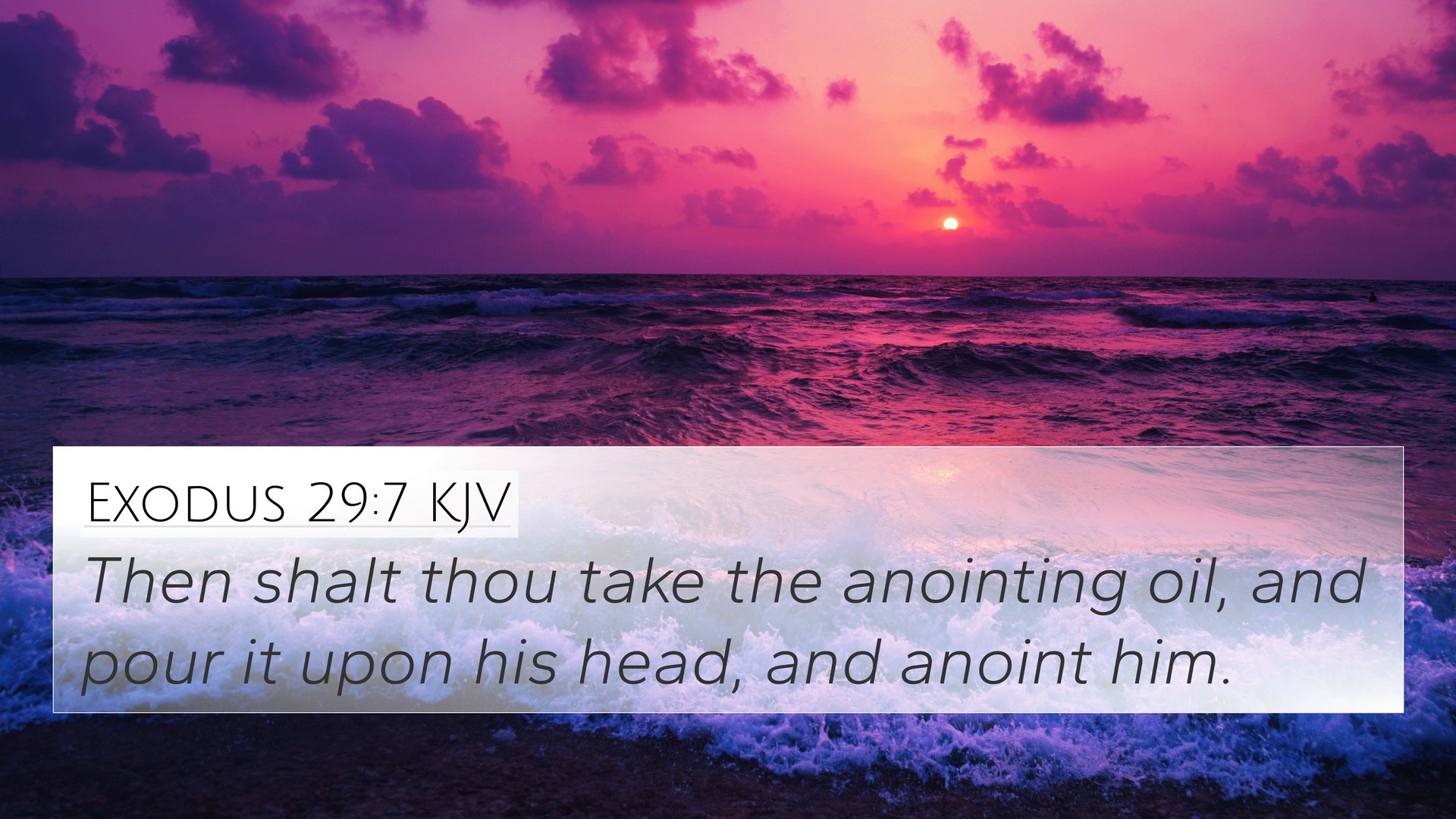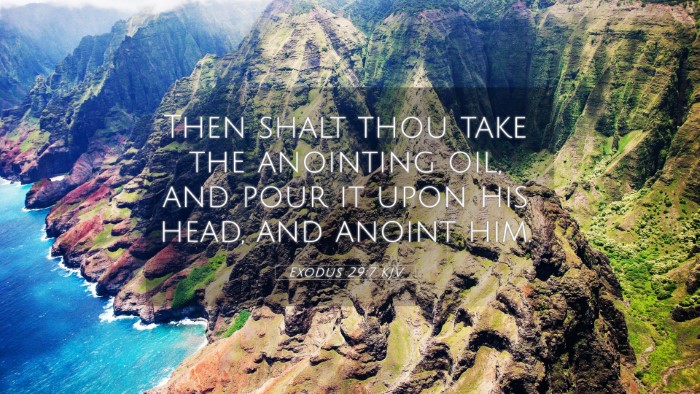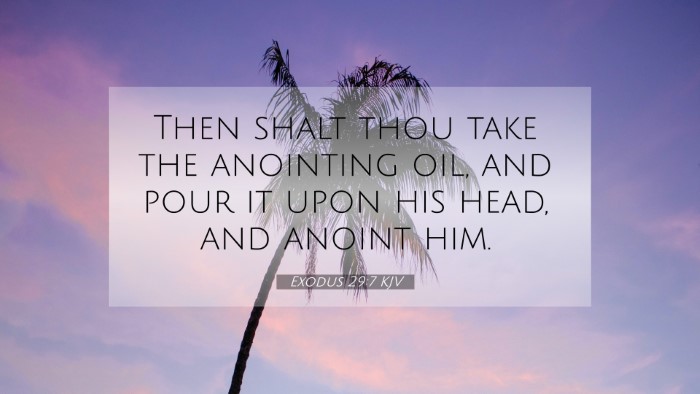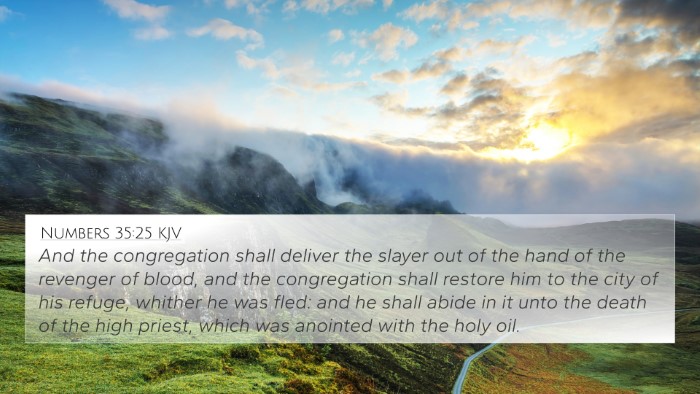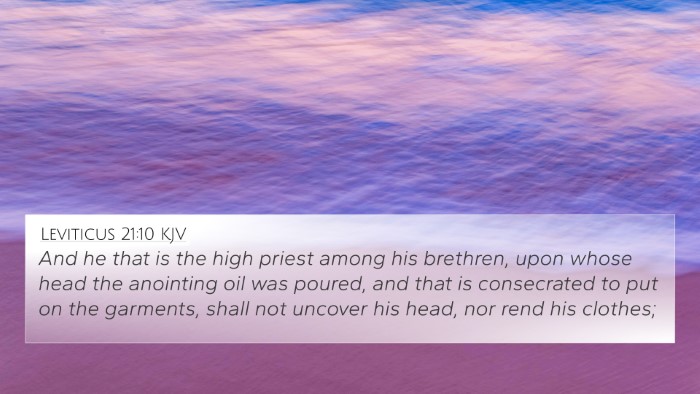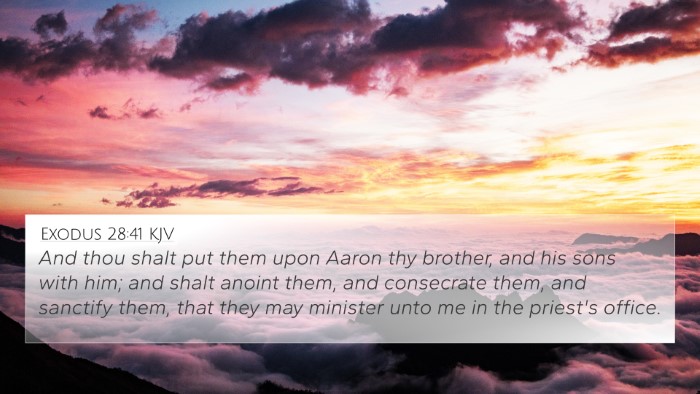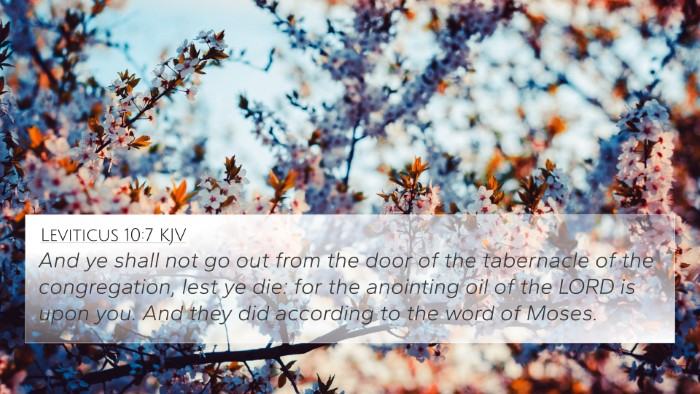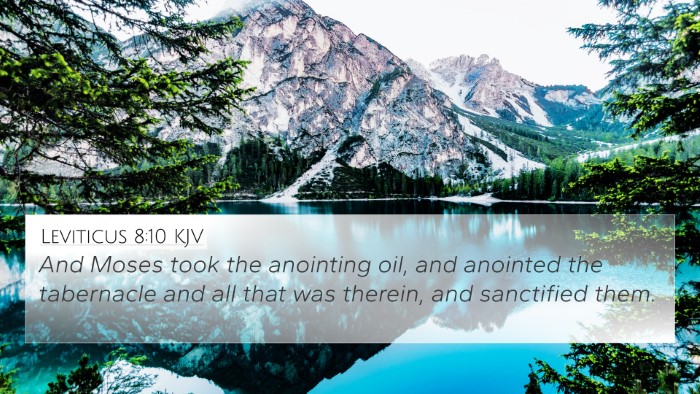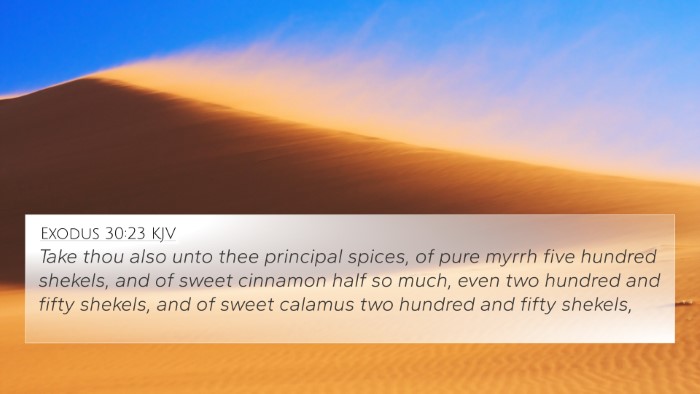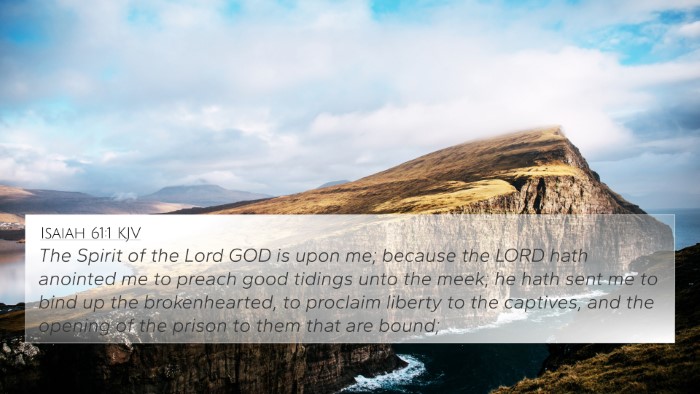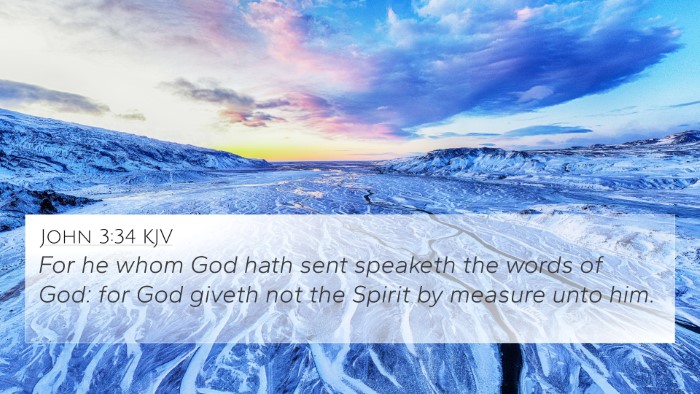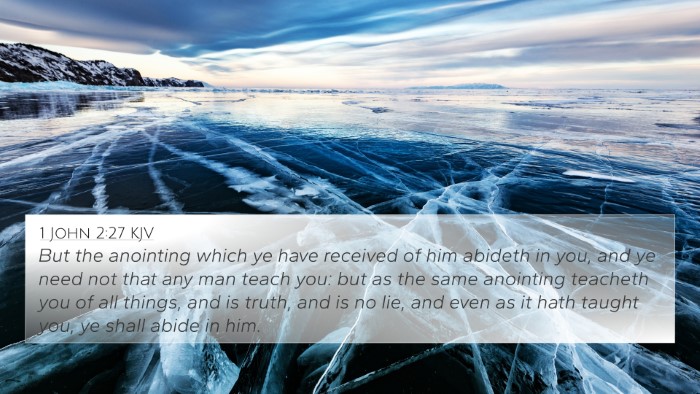Exploring the Meaning of Exodus 29:7
Exodus 29:7 states, “Then thou shalt take the anointing oil, and pour it upon his head, and anoint him.” This verse captures a crucial moment in the consecration of Aaron and his sons as priests. The act of anointing with oil signifies several spiritual truths and principles concerning the priesthood, worship, and divine selection.
Understanding the Context
In this instance, Moses is instructed by God on how to consecrate Aaron and his sons to serve as priests. The significance of the anointing oil embodies God's choice and empowers the anointed for service. Matthew Henry emphasizes that this anointing was not merely ceremonial but was an essential act demonstrating God’s approval and empowerment.
Spiritual Significance of Anointing
The anointing with oil has deep roots in biblical tradition, symbolizing:
- Separation: The anointed ones are set apart from the common to serve a holy purpose.
- Empowerment: God's Spirit consecrates the individual, enabling them to carry out their duties effectively.
- Divine Approval: Anointing signifies God's blessing and selection for a specific role within His covenant community.
Commentary Insights
Albert Barnes adds that the use of oil in the anointing process represents the Holy Spirit's work in believers’ lives. Adam Clarke also highlights the historical practice of anointing in ancient Israel, where oil symbolized joy, abundance, and the gift of the Holy Spirit.
Bible Cross-References
Exodus 29:7 has several biblical connections that enrich its understanding:
- 1 Samuel 10:1 - The anointing of Saul as king.
- 1 Samuel 16:13 - David is anointed by Samuel, marking God's choice.
- Psalms 133:2 - Describes the oil on the head representing unity and anointing.
- Leviticus 8:12 - Highlights the anointing of Aaron’s head during consecration.
- Isaiah 61:1 - Prophetic anointing of the Messiah.
- Hebrews 5:4-5 - Establishes the priestly order of Jesus, likening it to Aaron's.
- James 5:14 - Discusses anointing the sick in the New Testament church.
Bible Verse Connections
The thematic connections between Exodus 29:7 and other scriptures involve the establishment of the priesthood, the holiness required for sacrificial service, and the unity of the community in worship. Linking Bible scriptures helps in understanding the cohesive narrative of God’s redemptive plan through anointed servants.
The Role of Anointing in Worship
The act of anointing signifies the seriousness with which God approaches the covenantal relationship with His people. It lays a foundation that culminates in the New Testament understanding of Jesus as the ultimate High Priest, a theme explored in various scriptures.
Practical Application
In modern Christian practice, understanding the significance of anointing holds insights for both personal and communal worship. Believers are called to be ‘anointed’ for service, empowered by the Holy Spirit to live out their faith in a manner that reflects God's glory.
Conclusion
Exodus 29:7 offers a profound glimpse into the nature of divine appointment and service. Through the lens of biblical cross-referencing, we witness the threads of anointing interwoven throughout scripture, revealing God’s unchanging purpose in establishing His priesthood and the holiness of worship. The connections between Bible verses deepen our understanding and encourage a rich engagement with God’s Word.
